There are so many nutrition and food myths out there that people still believe to be true, from avoiding carbs for weight loss to ‘eating celery burns more calories than it takes in’. It’s time to put some of these myths to bed and set the record straight on what is actually true.
James Weeks, lead Dietician for CHU and registered Dietitian, shares his thoughts and helps us to debunk 10 of the most common food myths.
1. Carbs are bad for you

‘Carbs’, or carbohydrates are often labelled as the enemy for those looking to shed a few extra pounds and is probably the most common food myths out there. However, carbohydrates are an important fuel for the brain as well a major fuel source for your muscles. There’s a reason carbohydrates make up more than 50% of a marathon runners diet. So why the bad press?
There are three different types of carbohydrates;
- Complex (or starchy)
- Simple (or sugar)
- Fibre.
Starchy carbohydrates require digestion and absorption and so provide a slow-release of energy throughout the day. These are commonly found in bread, pasta, potatoes and rice. Sugar is a simple form of carbohydrate which is easily absorbed and can lead to fast, large spikes in blood sugar levels. This can be very useful in certain situations but if over consumed, and for most sedentary people, promotes weight gain very easily. Fibre on the other hand provides very little energy but offers excellent health benefits such as increasing stool size and stool frequency. This can have the benefit of preventing certain types of cancer. Carbohydrates are therefore NOT bad for you.
The important thing to consider when choosing carbohydrates are the type (simple vs complex vs fibre), quantity and frequency at each meal. If weight-loss is the goal, try to limit complex carbohydrate portions to ~¼ of a plate and increase vegetable portions to ~½ a plate. If you wish to increase your fibre intakes, switch to wholegrain/whole-wheat varieties and increase your vegetable consumptions.
2. You shouldn’t skip breakfast
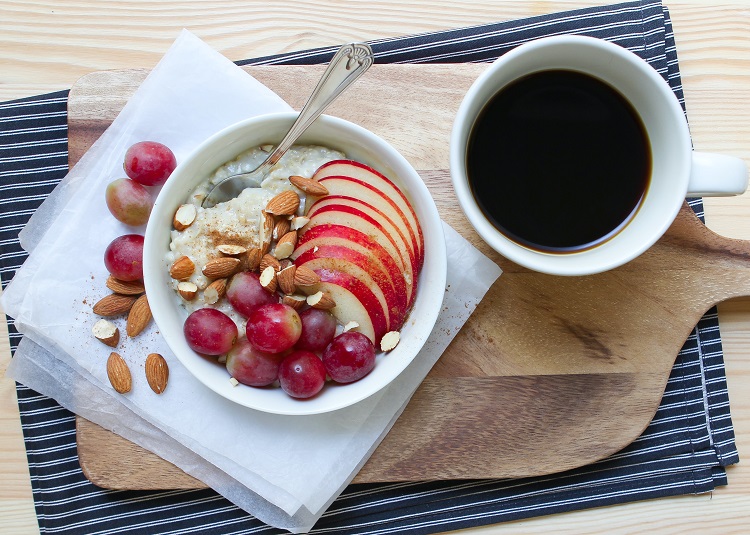
Research in this area is often confusing with conflicting findings. Some studies show those who skip breakfast tend to be more hungry during the day, which often leads to more food being eaten and therefore weight gain. Other studies have shown lower overall food intakes with those who skip breakfast.
So what should you do? Well, it depends on the type of person you are, as everyone is different. Skipping breakfast may or may not cause you to eat less, so don’t force yourself into an eating habit that isn’t for you or something you cannot sustain. As always, following a healthy balanced diet in line with the Eatwell Guide from Public Health England is always recommended.
3. Gluten-free foods are healthier
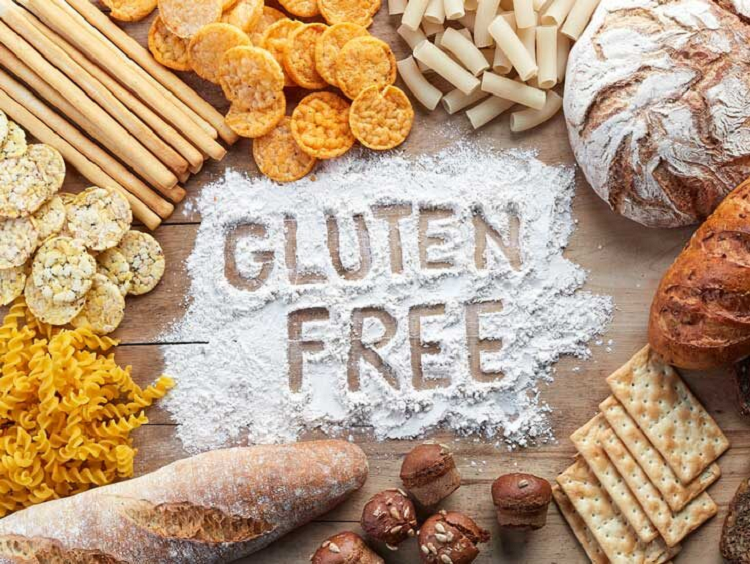
Unless you have coeliac disease (a condition in which the body attacks itself after eating gluten), gluten-free foods will offer no benefit over gluten-containing foods. Both gluten and gluten-free products often contain the same amount of calories (the energy you get from food), carbohydrates, vitamins and minerals; however, gluten-free foods usually come with a higher price tag. If you suspect you have coeliac disease, you may wish to visit your GP who can diagnose this with a specific blood test.
4. Drinking fruit is as nutritious as eating it
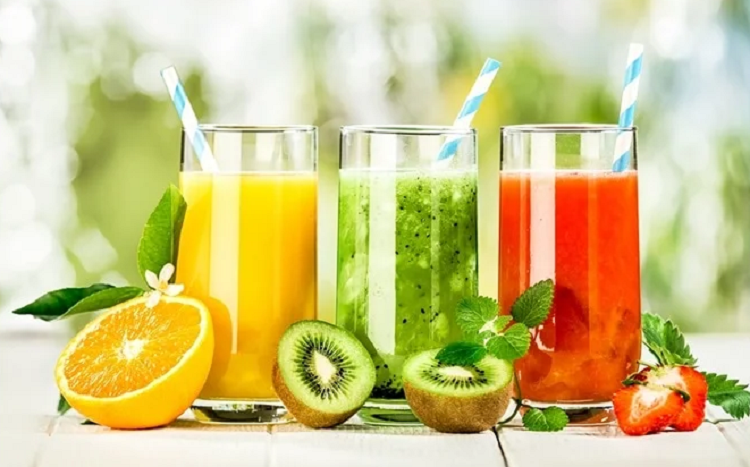
Fruit juice is a great source of vitamins (especially Vitamin-C), can help you remain hydrated and contributes to 1 of your 5-a-day. However, it does not provide as many benefits compared to eating the fruit itself. Fruit and fruit-juice contain a sugar called ‘fructose’ which raises your blood sugar levels when consumed. Although a natural form of sugar, it still can still contribute to your risk of developing diabetes, heart disease and dental cavities when consumed in excess.
Fruit-juices are also often over-consumed, as portion sizes are overestimated, meaning more sugar (and calories) is consumed than realised. 1 portion = 100mls of fruit juice vs 80g of fruit. Eating fruit compared with drinking juice provides valuable dietary fibre. This has the benefit of reducing how quickly blood sugar levels increase (this is good), improving gut health and reducing the risk of developing certain cancers.
5. Eating celery burns more calories than it takes in

The theory behind this lied behind the ‘thermogenic effect’ of food. Put simply, this means the amount of energy your body uses to digest food and absorb its nutrients. Your body typically uses 5-10% of its daily energy expenditure to do this. Eating low calorie foods such as celery (and other non-starchy vegetables in fact) is believed to provide a small amount of calories but uses more calories to obtain them, therefore burning calories in the process. It is therefore possible to have calorie-negative foods but studies to prove this are limiting.
Put simply, it is not known whether eating celery burns more calories than it takes in. But, it is always recommended to incorporate a wide variety of low calorie, high fibre foods (e.g. non-starchy vegetables) into a healthy, balanced diet.
6. You should avoid eggs because they have a high cholesterol content

High blood cholesterol levels increase the risk of heart disease (heart attacks and stroke). This is a fact! However, this doesn’t mean consuming cholesterol is ‘bad’. Testosterone, Oestrogen and Progesterone are all hormones made by the human body from cholesterol obtained through the diet.
Consuming too little cholesterol could therefore lead to poor production of these hormones. We need cholesterol in our diets! More recent evidence has also shown that dietary cholesterol has a much smaller effect on our blood cholesterol levels than the cholesterol we make ourselves in response to high intakes of saturated fats. So, if you’re concerned about high cholesterol levels, you’re better off avoiding fatty meat products, switching to leaner meats or poultry and changing high fat dairy products for skimmed alternatives. Oh and if you’re still worried about eggs, don’t be, they’re low in saturated fats.
7. Frozen and canned fruits and vegetables are less nutritious than fresh ones

Frozen and canned fruit and vegetables are often as nutritious and can be more nutritious than ‘fresh’ varieties. Yes, you read that right. This is because your fresh fruit and vegetables, aren’t always fresh. Now, for those of you who are buying from your local farm shop or growing your own, you don’t have to worry as much. But, for those who are buying your fruit and vegetables from large supermarkets this is for you.
Frozen fruit and vegetables are picked and frozen at peak season, meaning they haven’t perished and lost valuable nutrients by the time they reach your door. Canned produce often undergoes slightly more processing but tends to have a very similar nutrient profile to that of fresh and frozen produce. So, if you’re looking to increase your fruit and vegetable intakes but don’t quite have the room in the fridge/fruit bowl, try choosing a tinned or frozen option.
8. Fruit contains too much sugar
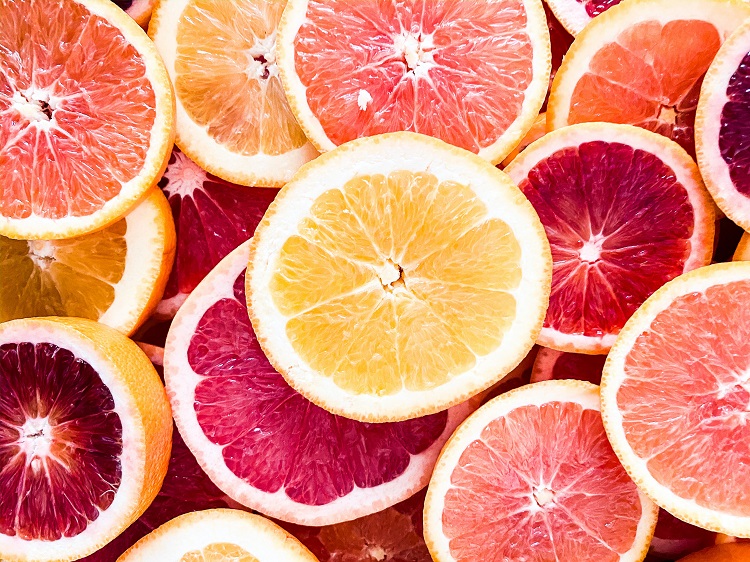
As mentioned earlier, fruits are full of vitamins, minerals, antioxidants and fibre which offer several health benefits such as improved longevity, healthier skin and reduced cancer risk. Fruits also contain a naturally occurring sugar called fructose. Sugar is a carbohydrate, meaning it is a source of energy for the body.
Despite the negative press it gets, small amounts of sugar are harmless and, depending on your activity levels, may even improve athletic performance. Ever recall a tennis player munching on a banana mid-game? Sugar is a ‘simple’ carbohydrate meaning it doesn’t need to be broken down by the body. It is therefore absorbed quickly which can lead to sharp, high spikes in blood sugar.
Controlling portion sizes (sticking to 80g or what fits into the palm of your hand) and limiting portions to 3-a-day will provide all the health benefits whilst reducing the risk of over-consuming sugar.
9. You should do cardio on an empty stomach to lose weight

Exercising in a ‘fasted‘ state (on an empty stomach) may encourage your body to burn a higher proportion of fat and a lower proportion of carbohydrates. This is because the hormone environment in a fasted state increases the amount of fat that leaves your fat cells to go to your muscles to be burned for energy. However, don’t let this information fool you. This does not mean your body will burn more calories or body fat than if you exercised in a ‘fed’ state.
To lose weight effectively, you need to create an energy deficit which can be sustained. This means consuming less calories than you burn. The down side to performing on an empty stomach is it can lead to a quicker onset of fatigue and can prevent you exercising at a higher intensity. In addition, your muscles are more likely to burn more protein which could also mean you lose valuable muscle in the process.
10. Fat-free foods are better for you
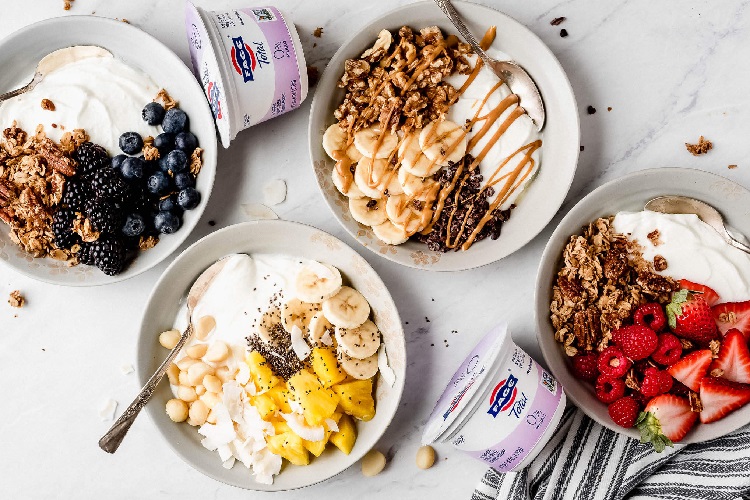
Dietary fats are essential! Now that we’ve got that settled, we can move on. Fats make up part of the cell membrane in all body cells, without it, there would be no you or I. They also provide essential fat-soluble vitamins (A,E and D) which have a whole host of health benefits. So why does it get bad press? Fat per gram contains 9kcal (calories) whereas protein and carbohydrates provide 4kcal per gram each. You can see why people believe eating fat makes you fat. This belief led the marketing of ‘fat-free’ foods.
However, the issue with fat free foods is that they’re often highly processed and loaded with sugar and salt. These are added to improve the flavour because with fat removed, and no alternative replacing it, they would taste horrible. Fat-free foods often lead to higher intakes of sugar and salt which, when eaten in excess, increases the risk of developing diabetes, heart disease, and high blood pressure. So, in short, you are better off enjoying non-fat-free foods in moderation than their fat free alternatives.